Ducks are friendly, water-loving birds known for their cheerful quacks, waddling walk, and strong swimming. They are found in both wild and domestic settings. They are kept for eggs, meat, and feathers, and are often loved for their fun and gentle behavior.
Scientific Classification
-
Kingdom: Animalia
-
Phylum: Chordata
-
Class: Aves
-
Order: Anseriformes
-
Family: Anatidae
-
Common Species:
-
Mallard (Anas platyrhynchos)
-
Muscovy duck (Cairina moschata)
-
Pekin duck
-
Indian Runner duck
-
Common Names
-
Duck (general term)
-
Drake (adult male)
-
Hen (adult female)
-
Duckling (baby)
-
“Agbon” (Yoruba)
-
“Agwando” (Hausa)
-
“Bata” (Swahili)
Geographic Distribution
Ducks are found worldwide, especially around:
-
Lakes, ponds, rivers, and wetlands
-
Farms and village backyards
-
Wildlife parks and rice fields
Some ducks are wild and migrate with the seasons, while others are raised by humans.
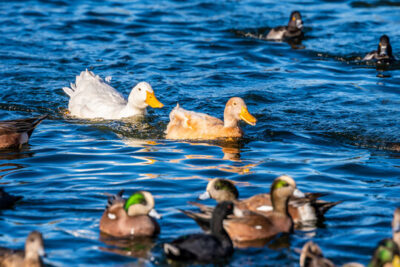
Image showing a group of ducks swimming in a calm pond (Source: Adobe stock)
Common species of ducks
1. Muscovy Duck
Large, quiet duck with red facial skin, usually raised for meat.
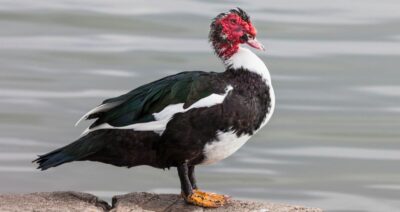
Image showing Muscovy duck with black-and-white feathers and red facial patches (Source: All About Birds)
Key Facts:
-
Doesn’t quack much, makes hissing sounds
-
Grows large and fast
-
Great for meat production
2. Mallard Duck
A wild duck species, also the ancestor of many domestic ducks.
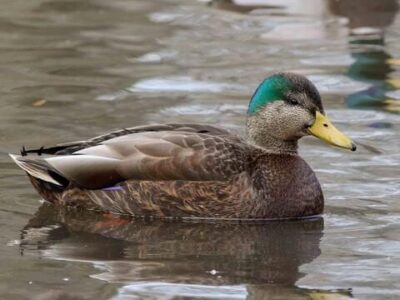
Image Showing Mallard drake with green head and brown body (Source: All About Birds)
Key Facts:
-
Males have shiny green heads
-
Common in the wild and in parks
-
Known for v-shaped flying during migration
3. Pekin Duck
A white domestic duck usually seen in commercial farms.
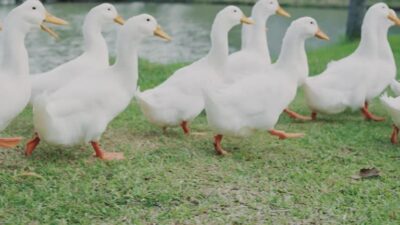
Image showing White Pekin ducks waddling on green grass (Source: Getty images)
Key Facts:
-
Fast-growing and calm
-
Produces many eggs and meat
-
Needs clean water and good food
Behavior and Lifestyle
Ducks are social and active birds that love being in groups.
-
Waddle on land, but swim very well
-
Use their flat beaks to filter food from water or mud
-
Build nests near water using grass and feathers
-
Females are very protective of ducklings
-
They preen (clean) their feathers with oil from a gland near their tail
They enjoy water for bathing, cooling off, and play.
What do ducks eat?
Ducks are omnivores, they eat both plants and small animals.
Typical food includes:
-
Grains (maize, rice, wheat)
-
Vegetables and grass
-
Insects, snails, and small fish
-
In farms: pelleted duck feed and clean water
Avoid feeding:
-
Moldy bread or salty snacks
-
Uncooked beans or dirty water
Fun facts
-
Ducks have waterproof feathers, water rolls off their backs.
-
A duck’s feet don’t feel cold in icy water due to special blood flow.
-
Ducklings follow their mother within hours of hatching.
-
Ducks can sleep with one eye open to stay alert.
-
Their beaks contain tiny filters to help them find food in muddy water.
Importance to Humans
Ducks are valuable in many ways:
-
Eggs and meat are a source of protein
-
Feathers are used for pillows, clothes, and bedding
-
Helps to control insects and weeds in rice fields
-
Bring joy as pets or ornamental birds
-
Featured in stories, cartoons, and traditional culture
Health & common issues
Ducks are hardy birds, but need good care to stay healthy.
Common health problems include the following:
-
Worms and parasites
-
Bumblefoot (foot swelling from walking on rough ground)
-
Respiratory diseases
-
Wet feather (from dirty water or poor preening)
-
Egg-binding in females
Veterinary needs:
-
Clean water and bedding
-
Balanced diet with vitamins
-
Deworming and disease prevention
-
Protection from predators like dogs and hawks
Conservation status
Most domestic ducks are not endangered, but some wild ducks face threats.
Threats to wild ducks:
-
Polluted water and wetlands
-
Overhunting
-
Loss of nesting areas
-
Climate changes affecting migration
Conservation Actions:
-
Create and protect wetlands
-
Ban harmful chemicals in farms
-
Encourage eco-friendly farming and duck-keeping
-
Wildlife education and hunting control
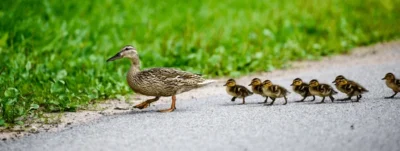
Image showing a line of ducklings following their mother across a quiet road (Source: Shutterstock)
Have ducks or want to start duck farming? Contact Doctor Hulk Veterinary Hospital Today @ 08143397614.




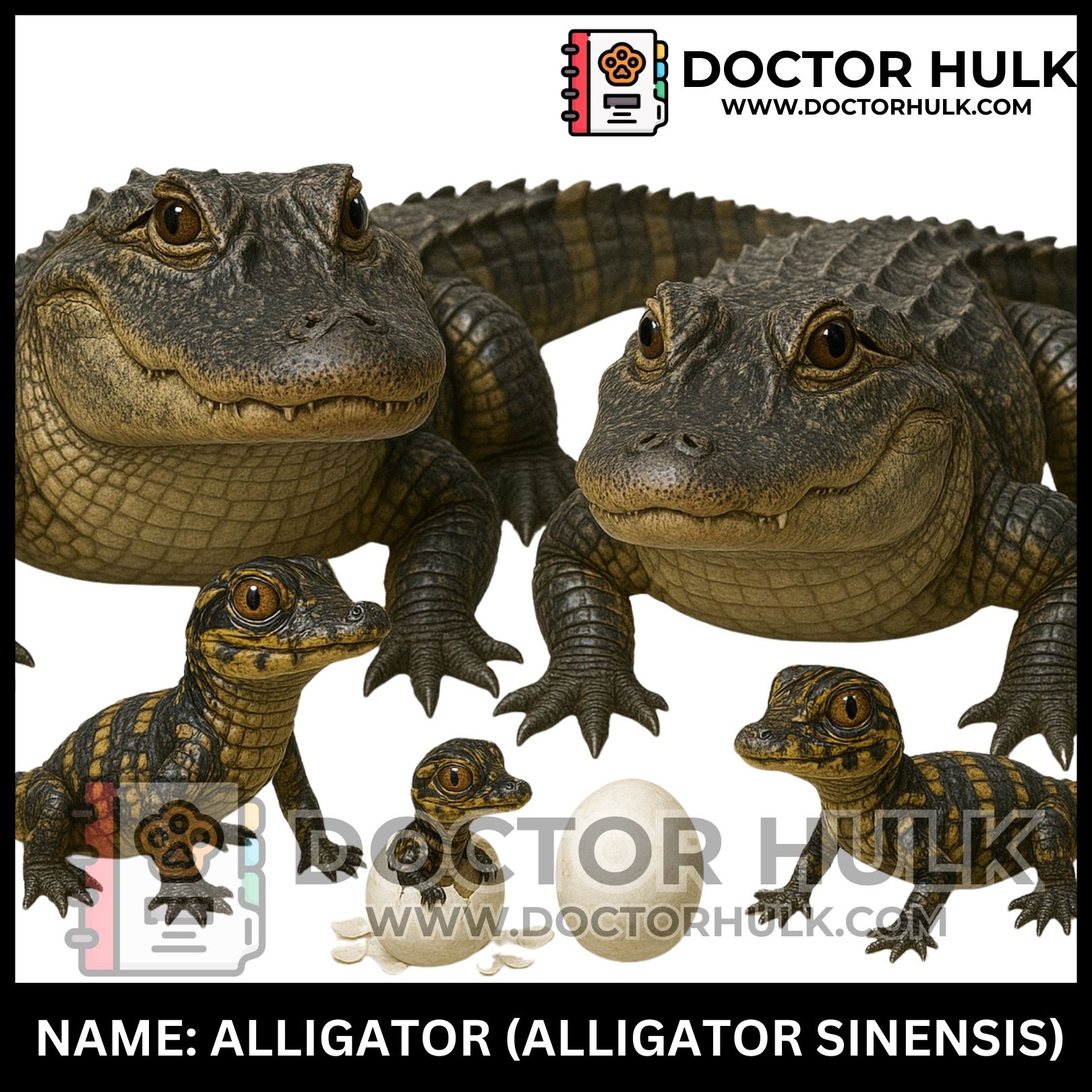
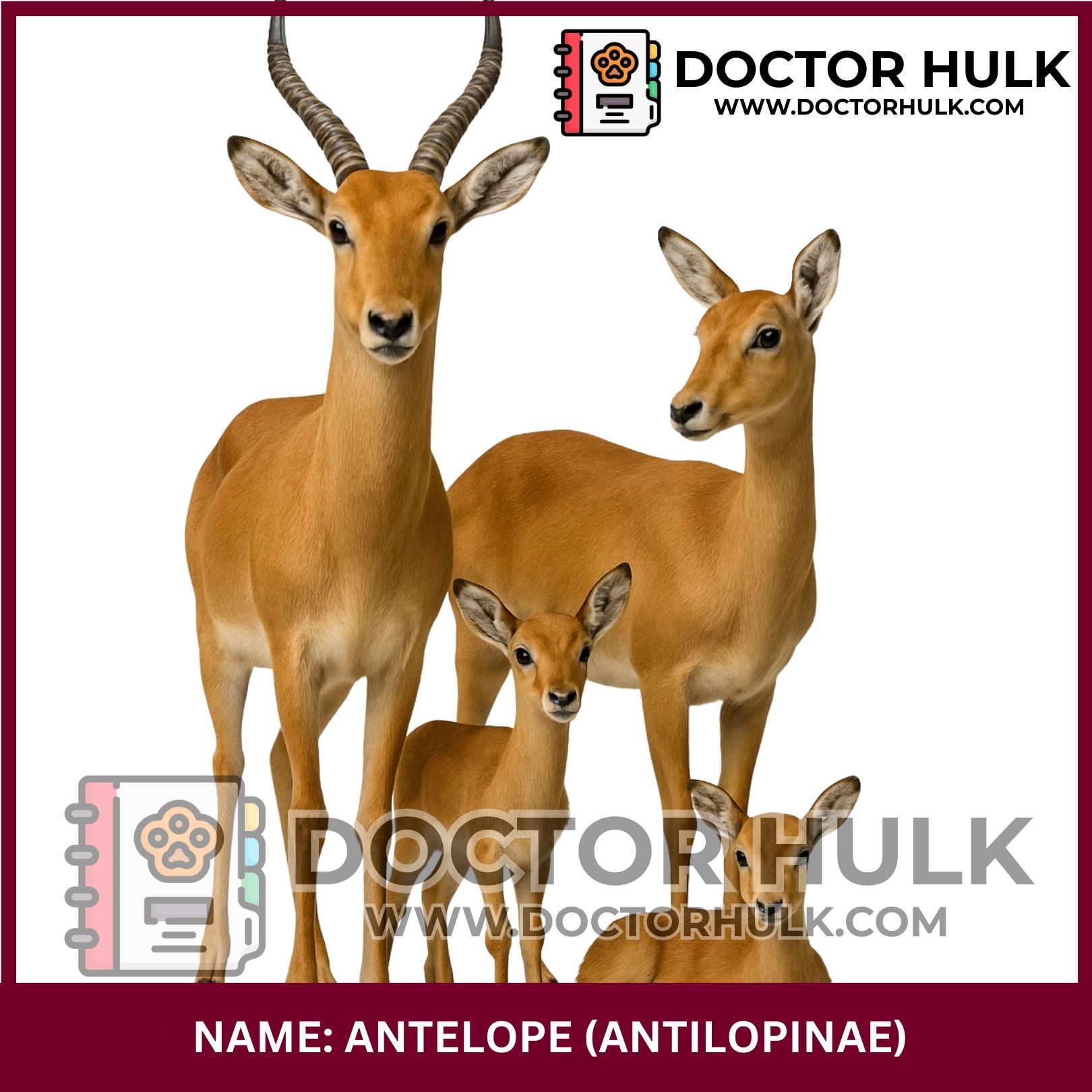
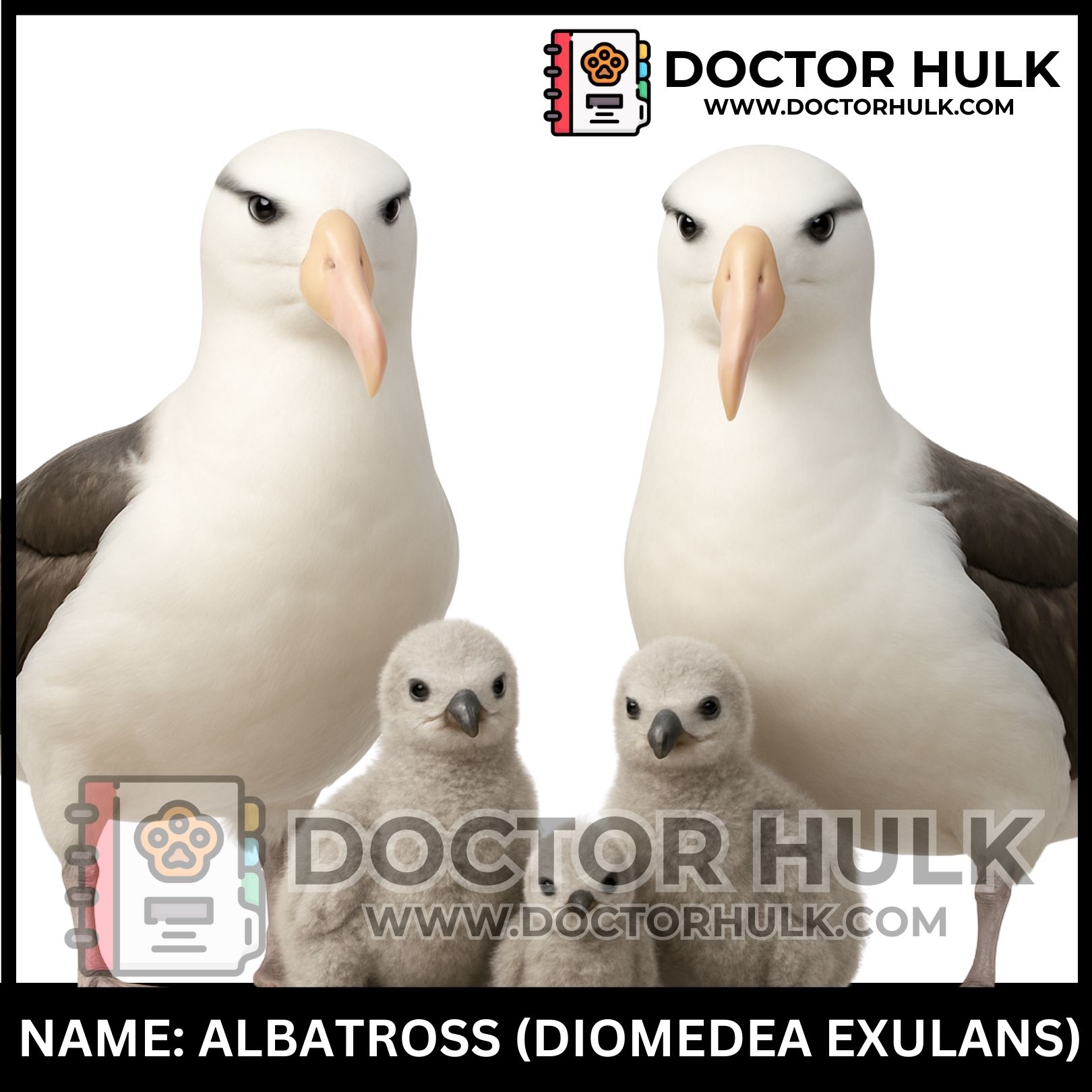
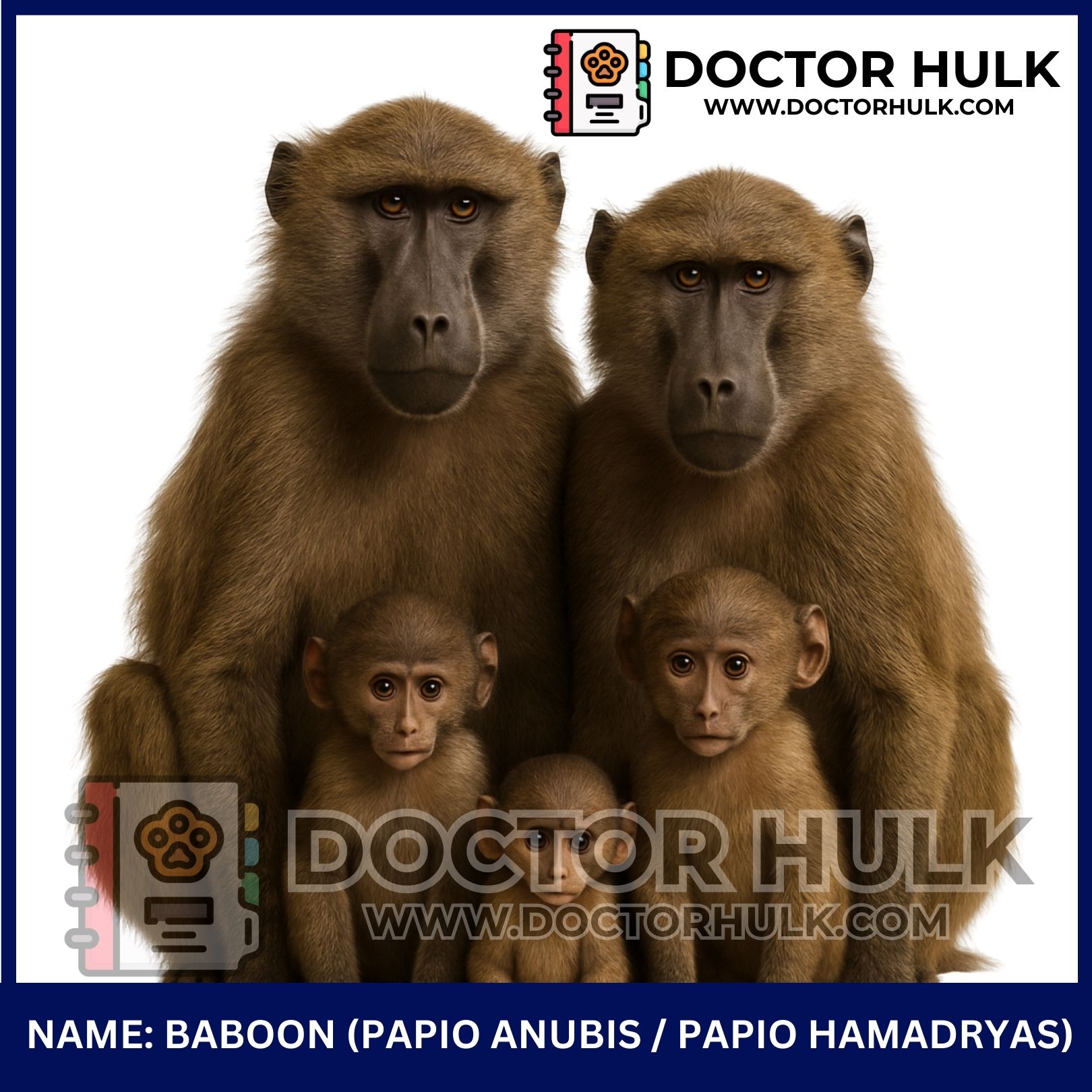
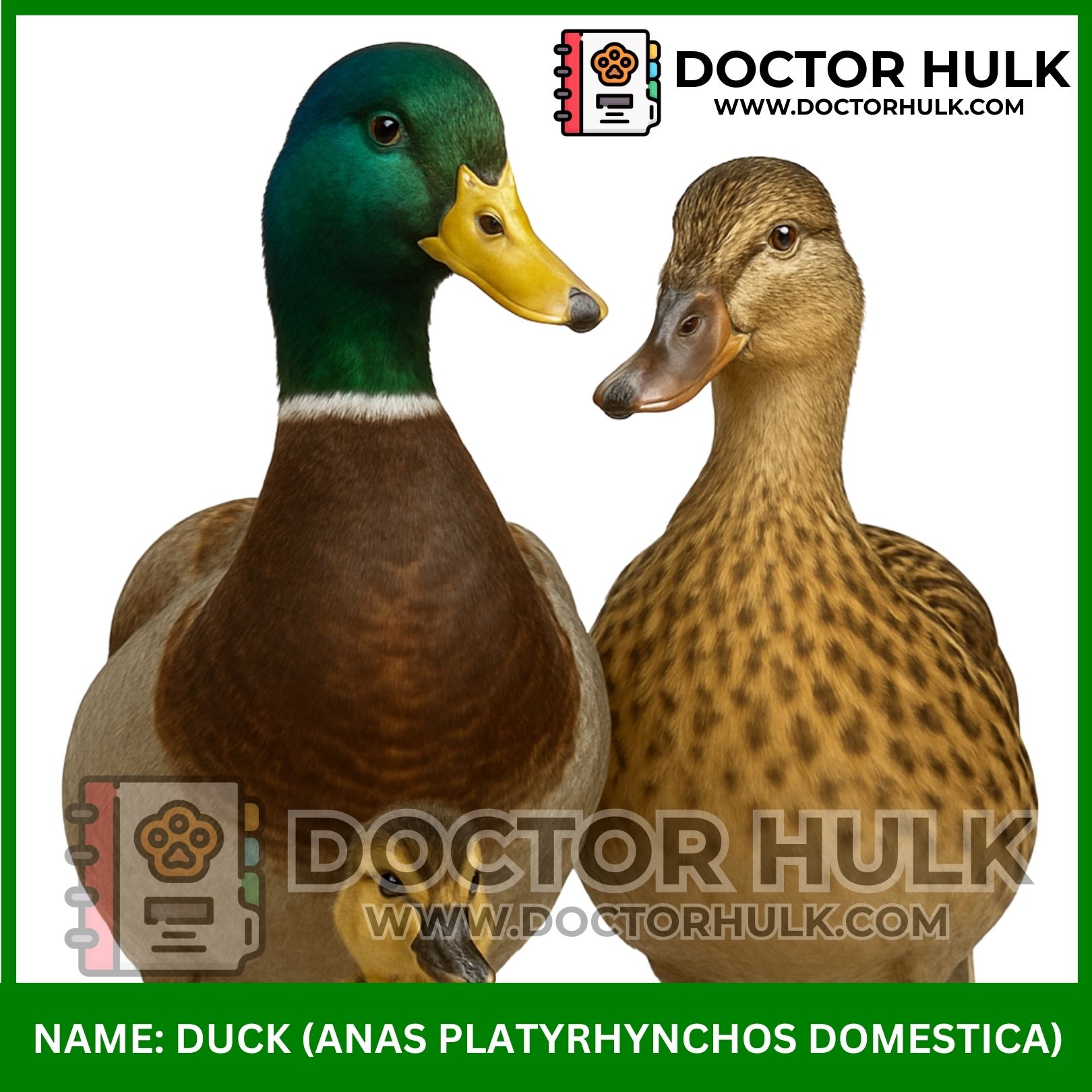

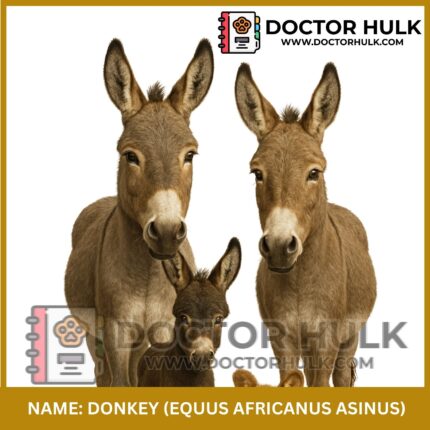


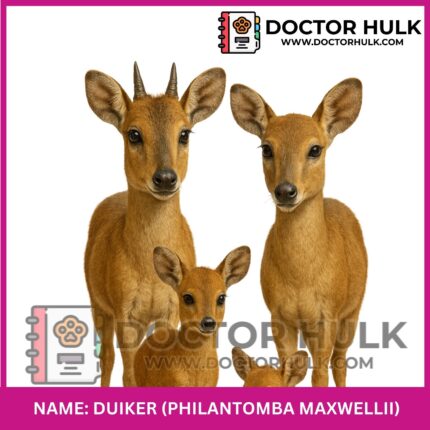

Reviews
There are no reviews yet.